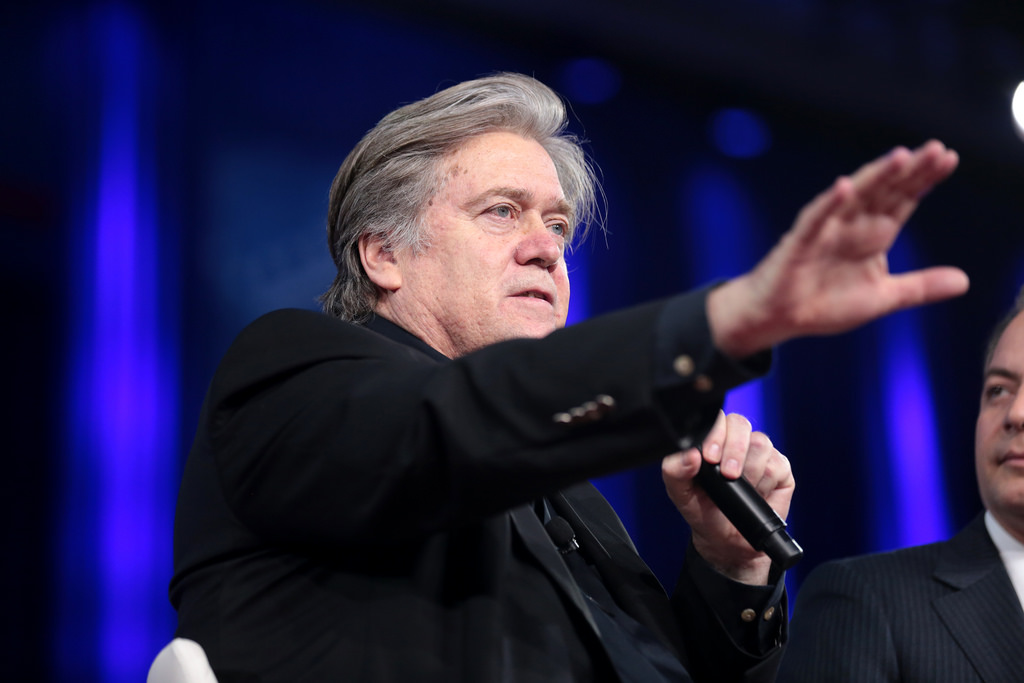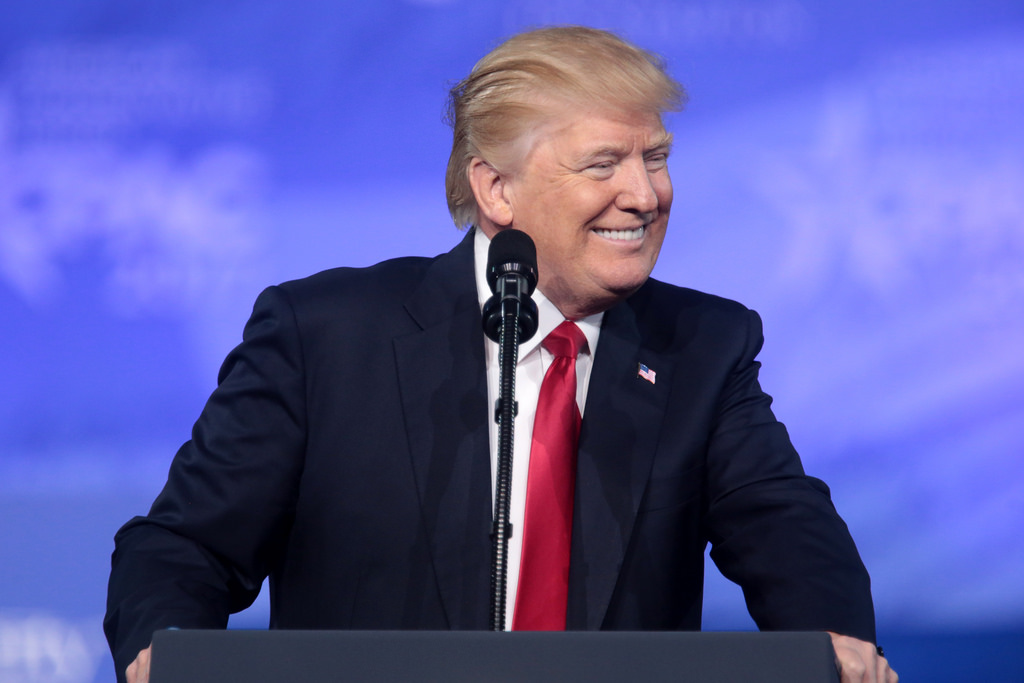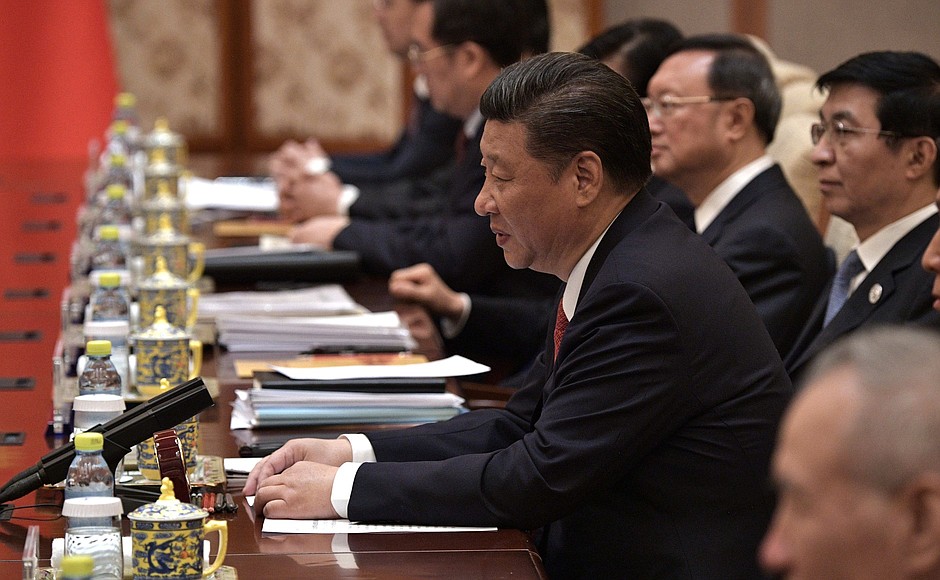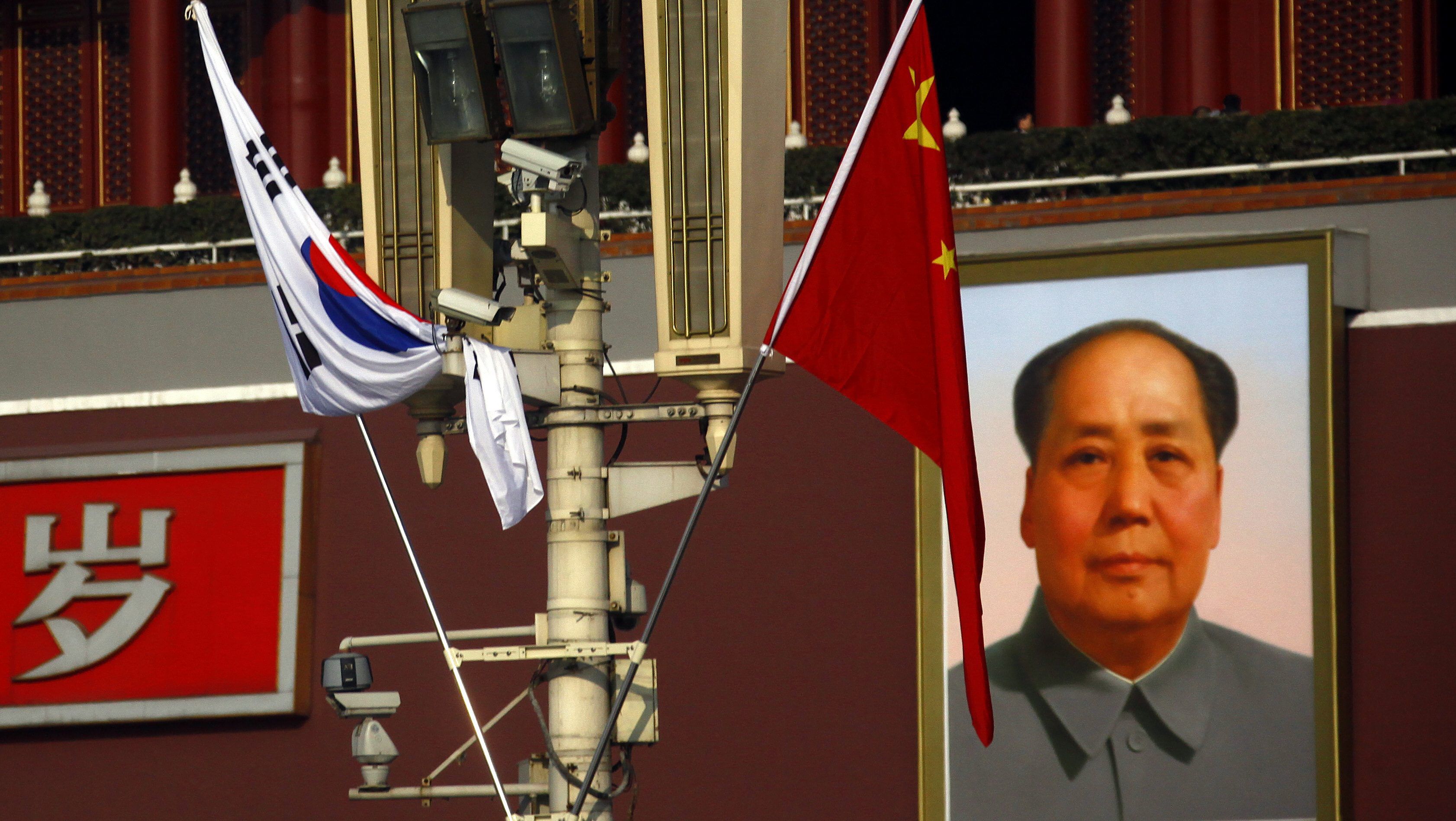
 Bannon Out: What now for the China-US relationship?
Bannon Out: What now for the China-US relationship?President Donald Trump's Chief Strategist, Steve Bannon, was fired on Friday, 18 August 2017. Bannon had been at odds with Trump in the lead up to his ouster, including contradicting the President on the situation in North Korea. The expelled Chief Strategist was often seen as one of China's strongest critics and the driving force behind Trump's "nationalist" ideology. Following his exit, Bannon spoke to The Weekly Standard noting that "the Trump presidency that we fought for, and won, is over."
During his final days in the White House, Bannon was quoted as saying "we're at economic war with China," calling the situation on the Korean Peninsula "a sideshow." However, some speculate that his departure will only provide a temporary relief to China. According to Chen Dingding, a professor of international relations at Jinan University in Guangzhou, "it may be good for China in the short run, but it won't have a profound impact in the long run because he's just one person and Trump has the final say."
There has also been polarized speculation as to how far the Trump Administration will go in continuing to pursue Bannon's "nationalist" ideology, including his strong opposition to cooperation with China. On the one hand, there is corporate America, unions, and free trade experts who have concerns that this announcement will be followed by damaging unilateral actions. On the opposite side, there is Bannon and his base of "nationalist" supporters, who fear that "the administration will pay lip service to the fiery populist agenda, only to back down in the end."
Meanwhile, recent actions by the Trump Administration have been seen as "a sign that the Trump Administration is still willing to risk a trade war with China, despite its ouster of strategist Steve Bannon." Supporting this concern, the South China Morning Post noted that elation surrounding Bannon's departure, in hopes of better China-US relations, may turn out to be "ill justified." It was noted that "the reality is that a likely demise of the 'America first' doctrine, championed by nationalists like Bannon, may also see the United States returning to a realist posture in international relations. If so, it may well resume its global strategic rivalry with China."
Despite the less than optimistic rhetoric, others point to Bannon's departure as "a reminder that Beijing's strategy for 'containing Trump' has so far been a successful one." Further, Forbes had also discredited Bannon's misplaced presuppositions. They noted that Bannon's assumptions about the China-US economic relationship are "wrong, for trade is mutually beneficial. That is, it benefits us (the United States) to be trading with China, it benefits China to be trading with us, we all get richer together the more trade we do. This is because, as economists put it, trade is positive sum, not zero sum."
 U.S. Unilateral Actions Stir the Pot
U.S. Unilateral Actions Stir the PotAs the Trump administration ventures into a new era of "Strategic Accountability", it has swiftly amplified unilateral pressure against Chinese 'missteps'. Last Monday, the Trump administration launched an investigation into China's "sustained and widespread attacks on America's intellectual property." A week later, the U.S. Treasury Department issued sanctions against Chinese entities accused of assisting Pyongyang's nuclear weapon and ICBM development programs.
Some analysts - and Donald Trump - say that these unilateral actions are "just the beginning".
While this drumbeat of pressure on Beijing has enjoyed more bipartisan support than many of Trump's other recent endeavors, the potential implications of these actions for China-U.S. trade has sparked significant concern among a number of domestic and international entities.
Last Monday, the Chinese Commerce Ministry called the Trump administration's intellectual property investigation "irresponsible" and "protectionist," arguing that it ignored the rules of the World Trade Organization. Following Tuesday's announcement, China's Foreign Ministry demanded that the United States "immediately" withdraw unilateral sanctions. On Thursday, the Commerce Ministry sharpened its tone, saying the sanctions had "poured cold water" on efforts to improve bilateral trade relations. The Ministry went on to lambaste the USTR probe, and accused Trump of "sabotaging" international trade.
Opposition on the IP probe and future unilateral actions against Chinese businesses has been echoed by an unlikely player: Silicon Valley. Financial Times reports, "companies that have built a mainland Chinese presence are not eager to risk their position on a political fight with a highly unpredictable outcome… Five years ago, the subject of IP was far more likely to arouse passionate support in Silicon Valley. But now, the reality of doing business in China has sunk in."
U.S. business leaders have been supportive of the Treasury Department's move to single out three Chinese coal companies which were collectively responsible for importing nearly half a billion dollars' worth of North Korean coal between 2013 and 2016. However, some fear that more dramatic penalties against Chinese financial institutions and businesses could have major economic consequences in the U.S. - or even a trade war. "We have the ability to say, 'Any Chinese SOE that we consider relevant is fair game,'" said American Enterprise Institute scholar Derek Scissors, giving a nod to the potential expansion of sanctions against major Chinese entities.
Most analysts do not believe that a trade war is imminent, mainly because any potential benefits would come with Pyrrhic costs. And it remains to be seen if any direct unilateral actions will result from the IP investigation, or if the Trump administration will expand sanctions to include major state-owned enterprises and banks. However this series of unilateral actions by the U.S. - and their reception by both China and domestic business communities - may underline a steady fraying in the relationship between the world's two largest economies.
 Full Steam Ahead Towards China's 19th Party Congress: Reforms & Crackdown
Full Steam Ahead Towards China's 19th Party Congress: Reforms & CrackdownAs summer comes to a close, the Beidaihe summit has passed, and the 19th Party Congress looms ever nearer, pressure is mounting for the Chinese government to have all tasks and goals aligned and in order before the major event. The most powerful voices in the Chinese Communist Party will assess the government's performance since the previous conference, as well as set goals for the country's political, economic and diplomatic future. Behind the public statements of order and tranquility, officials are working overtime to meet their objectives on all three fronts, allowing zero room for mistakes.
On the economic front, China has tightened its purse strings on foreign investment, restricting companies' outbound investments. At the same time, China's largest state-owned commercial banks are taking the next step in making the Belt and Road Initiative happen, raising billions to fund investment under Beijing's "Belt and Road" drive. Those banks include the China Construction Bank Corp, Bank of China, Industrial and Commercial Bank of China Ltd, and the Agricultural Bank of China Ltd. While this is a positive step for the Chinese Government, analysts have begun to highlight the risk that the state could amass hundreds of billions of dollars in nonperforming loans if the projects fail.
These "crunch time" policies have also led Beijing to tighten the reins on political expression. The high profile battle between Cambridge University Press and censorship has drawn ire and commentary from all corners of academia. Human rights activists and the attorneys that defend them are being ridiculed and condemned in televised show trials. Recent reports mention that orders have been issued to local officials and law enforcement banning the occurrence of any major crimes, including acts of terrorism or extreme acts of personal violence, and any mass gathering of people, "including petitioners heading to Beijing to complain about the government."
While it is too early to join the rampant speculation over who will be the next leaders of China, what is sure is that Xi Jinping's government will do everything in its power to make sure that the dragon's abode is immaculate and watertight.
 This Week in Chinese History
This Week in Chinese HistoryOn August 24, 1992, diplomatic relations were established between the People's Republic of China and South Korea. Despite being the last Asian country to formally establish diplomatic relations with the People's Republic of China, South Korea and China have made strides in the creation of a strategic and cooperative partnership, resulting in mutually beneficial actions such as the China-Republic of Korea Free Trade Agreement.
Prepared by China-US Focus editorial teams in Hong Kong and New York, this weekly newsletter offers you snap shots of latest trends and developments emerging from China every week, while adding a dose of historical perspective.
- 2017-08-18 Trump Launches “Investigation on Whether to Investigate” China’s IP Laws
- 2017-08-11 Threats of "Fire and Fury" on the Korean Peninsula
- 2017-08-04 Trump Administration Plans Trade Actions Against China
- 2017-07-28 Xi to Dominate the 19th CPC Congress
- 2017-07-21 A Steely Comprehensive Economic Dialogue
- 2017-07-14 South China Sea Arbitral Award after One Year
- 2017-07-07 Now is the Trump Honeymoon with China Over?
- 2017-06-30 China Passes New Intelligence Law
- 2017-06-23 The End of China’s Honeymoon with Trump & Diplomatic and Security Dialogue
- 2017-06-16 Climate Change and Reliable Data Dealt Blows
- 2017-06-09 India, Pakistan formally welcomed into the Shanghai Cooperation Organization
- 2017-06-02 Once Partners in Fighting Climate Change, Trump Retreats, China Stays Steady on Paris Climate Accord
- 2017-05-26 Chinese Missile Frigates Confronts USS Dewey as U.S. Resumes FON Operations in South China Sea
- 2017-05-19 The Belt and Road Forum Concludes Leaving Behind Mixed Reactions
- 2017-05-12 Beijing, Washington Reach First Trade Deal Under 100-day Plan
- 2017-05-05 Degree of Autonomy Decaying in Hong Kong?
- 2017-04-28 Aircraft Carriers, Submarines, and Jetliners: Now Made in China
- 2017-04-21 Green Cards & Red Lines
- 2017-04-14 U.S Beef for Chinese Chicken? More Hollywood Films in China?
- 2017-04-07 The Xi-Trump Summit in Florida